T: 01822 851370 E: [email protected]
Visit RSN Survey about life in rural England to find out more.
February Edition of Casebook from the Rural Health and Care Alliance
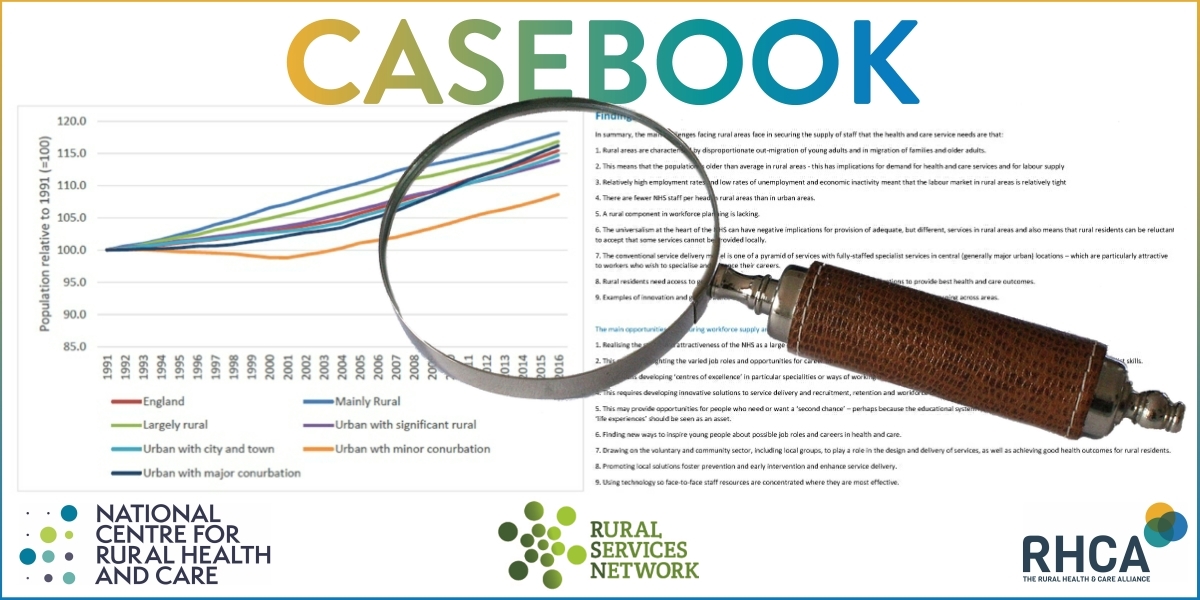
February 2023 Edition
In Casebook this time, better news on ambulance waits, malnutrition in the UK??? Vaccine stats and two workforce stories revealing the challenges we currently face. Some useful stuff in our National Centre Update section too, I hope!!
NEWS COMMENTARY
Ambulance waits down by nearly an hour in a month
This is some good and unexpected news….
Ambulance crews reached emergencies such as heart attacks and strokes one hour quicker in January than December in England, figures show.
They took 32 minutes on average, compared with more than 90 the month before.
The target is 18 minutes but January's average was the quickest for 19 months.
A&E waiting times also improved, with just over a quarter of patients waiting longer than four hours - down from more than a third in December.
One of the key factors in the easing of the pressures was the falling rates of hospital admission for flu and Covid in January after they both peaked at the turn of the year.
Full article: https://www.bbc.co.uk/news/health-64580956
Cost of living: GP concerns over rise in signs of malnutrition
The Deep End agenda profiled here, which has its origins in part at least in Australia is really insightful and fits deprived rural communities really well – let me know if you would like more information.
More cases of malnutrition are being seen in Scotland, according to doctors working in some of the most deprived communities.
A group called GPs at the Deep End is concerned the cost-of-living crisis is making people more reliant on cheaper, processed foods.
Dr Jen Dooley told the BBC people were choosing the wrong foods to 'fill up'.
She said she often saw patients lacking in basic vitamins and minerals.
GPs at the Deep End is a network representing doctors working in surgeries in the 100 most deprived populations in the country.
Dr Dooley, who is based in Port Glasgow in Inverclyde, said: "We're seeing a lot of cases where people come to us feeling a whole diverse range of presentation - fatigue, tiredness - and when we're investigating, we're finding signs of malnutrition."
Full article: https://www.bbc.co.uk/news/uk-scotland-64518568
Covid vaccine: How many people are vaccinated in the UK?
Useful to review the stats on this, particularly in view of the way it chimes in with the reduced Ambulance times story above.
So far, more than 52 million people have had a first vaccine dose - some 92% of over-12s. More than 49 million - 85% of over-12s - have had both doses.
While uptake of first and second doses dropped off late last year, there was a steep rise in people having boosters. However, booster numbers dipped over the
Christmas holiday period and remain low.
More than 38 million booster doses have been administered across the UK so far.
Full article: https://www.bbc.co.uk/news/health-55274833
‘They haven’t the foggiest who we are’: the watchdog fighting to protect Britain’s exploited workers
This article from the longer form story section in the Guardian is really interesting in the context of the workforce issues connected to social care it suggests significantly poor workforce practices in some rural settings…
Beels, who is the government’s director of labour market enforcement, says exploitation in the care sector and among migrant agricultural workers are at the top of her list of concerns.
Beels is a career civil servant, well schooled in diplomacy, but admits the watchdogs she oversees are understaffed and that the system is plagued by gaps that can be exploited – whether that be the complex definitions of employment status, the supervision of umbrella companies, or holiday pay.
She says her role is a bit like being “a lightning conductor” for those who feel exploited at work. Asked if there are enough inspectors, she says with typical understatement: “We have got about a quarter of the International Labour Organization’s recommendations in terms of inspectors, and by that yardstick you can say: no, there isn’t. It is hard not to say more resources would result in more things being done.”
Beels told a recent parliamentary committee that it was “not entirely my experience” that workers’ rights were improving under the current regime.
“The government has a strong agenda about growth,” she tells the Observer. “In my view growth can only be achieved with a workforce being looked after properly.”
She believes social care is a “big, big issue”. The government has attempted to deal with worker shortages by extending international working visa schemes in this and other sectors, but Beels says such extensions have the potential to create their own sets of problems. After last year’s rapid extension of the seasonal visa scheme for people picking fruit and vegetables, for example, it emerged some workers had been forced to pay finder’s fees to brokers in their home country to secure their UK roles.
Full article: https://www.theguardian.com/business/2023/feb/11/they-havent-the-foggiest-who-we-are-the-watchdog-fighting-to-protect-britains-exploited-workers
NHS consultants run private firms charging to cut waiting lists at their own hospitals
Well this article is a sign both of the times and significant workforce malaise facing the NHS. It tells us:
Some of the country’s most senior NHS clinicians are earning a lucrative sideline running private firms that offer to cut waiting lists at their own hospitals, the Observer can reveal.
Top consultants in Manchester, Sheffield and London are among directors of “insourcing” agencies that charge the health service to treat patients at weekends and evenings and have won millions of pounds of work.
Some hold leadership roles at NHS trusts that have awarded contracts to their own companies, raising concerns about potential conflicts of interest.
One deputy medical director jointly ran a firm that provided “insourcing” solutions to his own NHS trust before it was sold in a £13m deal last year. Other consultants have set up firms that they and their colleagues work shifts through themselves, often at rates above NHS price caps.
MEMBERS ARTICLES
We’d love to hear from you - share what you’re proud of
We have three great articles from members this month – featuring the Patient Association, Dispensing Doctors’ Association and the Lincolnshire Partnership NHS Foundation Trust, see below. If you have something, you would like us to feature in a future edition, please let us know by clicking here to send us an email.
Research shows patients want more control over how their health data are shared
Recent research finds that patients support the use of patient data in health research but do not like the idea that some companies may make money from the use of their health data.
We also found that patients mistrust many organisations involved in the sharing of individuals’ health data.
These findings come from work the Centre for Social Ethics and Policy (CSEP) at the University of Manchester undertook with patients.
The project is part of the GP Data Trusts pilot project, funded by the Data Trusts Initiative. It was set up to understand why so many people opted out from NHS Digital’s GP Data for Planning and Research (GPDPR) programme when it was launched in 2021. The programme was supposed to enable the sharing of data held by GP practices to improve planning of services and support research.
The work did find a possible way of sharing health information that could meet patients’ concerns about keeping data secure, recording data accurately, and only using data for ethical purposes.
This was by holding patient data in legal Trust. Patients who took part in the research believed a Trust may help patients to ensure their choices are respected.
Researchers at CSEP approached us to run focus groups with patients that would give them insight into why 1 million people chose to opt-out of the GPDPR programme when it was announced, and what would need to be in place to make people feel comfortable about sharing their data. We set up two focus groups with 24 patients selected to give a diverse representation of age, ethnicity, and region.
What the research found
A lot of participants in the study felt they had not been given enough information about the GPDPR programme. Some participants would have been happy to share their data if they had known more about the programme, but because they had not been given enough information to decide for themselves, they opted out.
Participants were unhappy that NHS Digital, which was going to launch the programme, had, in their view, simply decided what it would do with their data, rather than asking people to share their data.
What could be done better
Most participants wanted more information about what their health data would be used for if they shared it and how it would be kept secure. Some wanted to be informed about every use of their data and the benefits achieved.
Participants wanted more ongoing control over the use of their health data rather than a one-off choice whether or not to share them.
Conclusions
Lack of trust in the organisations involved in the sharing of healthcare data was the main reason patients opted out of the GPDPR programme. They did not trust that their GP data would be handled securely and only used for purposes they considered ethically acceptable.
The report suggests that to be trusted, any process of data sharing must provide patients with information about who their data are being shared with and why. It must also give patients more opportunity to control the use of their data.
Without these features, patients’ concerns over sharing their health data will remain and these could lead to a lack of trust in future health data sharing initiatives.
The full report, General Practice Data Trust (GPDT) Pilot Study: Report on Patient Focus Groups is available on the Patients Association’s website.
About the Patients Association
The Patients Association is an independent charity whose purpose is to ensure that everybody can access the health and care they need to live well, by ensuring that services are designed and delivered through equal partnership with patients.
The unintended consequences of urban-centric health politics
Policy announcements by NHS England aim to improve patients’ access to NHS healthcare services. However, the following are just a few examples of how well-intentioned policy can have unforeseen side effects in rural areas.
- Suggested changes to the GP partnership model: Replacing the GP partnership model with a fully salaried model risks undermining GPs’ ability to tailor care to the unique needs of rural areas and to deliver vital rural services such as NHS dispensing.
- Primary Care Networks: NHS England funding policy for Primary Care Networks (PCNs) sets out a target that requires patients to be able to access a pharmacy, in order that they can use the General Practice Community Pharmacy Consultation Scheme (GPCPCS). However, by definition, patients who use a dispensing doctor do not have access to a pharmacy, and therefore cannot access the GPCPCS.
- Medicine reclassifications: The UK medicines regulator recently announced easier access to a type of HRT without an NHS prescription. However, rural patients who cannot access a pharmacy cannot use this over the counter (OTC) supply route, as their local dispensing doctor practice is prohibited by regulations from selling OTC items.
- Emergency access to medicines: During the pandemic the NHS refused to implement emergency regulations to allow all patients in rural areas to access medications from their surgery. This fails to reflect the emergency provisions that were enacted during the much less severe swine ’flu pandemic in 2009.
- Changes to the GP Contract: GP contract changes, made because of the development of PCNs, allow local practices to work together to provide services to patients. However, no thought has been given to how rural dispensing patients can access medications if they are not seen by their own practice. This has meant that rural patients are, again, penalised because of a lack of planning by the NHS.
- Mass vaccination centres: Currently, the NHS is trying to encourage large centres to undertake more vaccinations for the population. These may work well in urban areas where public transport is widely available, however, this fails to cater to the needs of patients in remote and rural communities.
- GP+: In many communities, the GP+ service, offering an evening, weekend and Bank Holiday GP service is only based in urban locations. The use of this service by rural patients is very poor because many do not have access to public transport.
- Static NHS funding: This year, the government has increased the minimum wage, and the employers’ National Insurance contributions. The dispensing fee, which is designed to pay for the staff to provide a dispensing service to patients, has not been similarly increased. To keep the dispensary operating as a going concern, GP practices have had to make savings elsewhere.
These are just a few examples of the unintended consequences that can arise from policies that are inadequately rural proofed.
The DDA is now inviting rural MPs to take the ‘rural challenge.’
NHS England is being permitted to discriminate against the nine million patients – a population which is larger than that of Greater London - who live in remote, rural, coastal and island communities.
NHS officials regularly talk about the urgent need to remove inequalities and inequities from the system, yet their policies suggest otherwise.
We are asking MPs to:
- Please help your constituents to hold NHS England to account for its failure to deliver services to the whole population.
- Please use your voice in Parliament to challenge NHS England to deliver fully rural-proofed policy.
Together, we can give your residents access to the full range of NHS services, so that they get the health outcomes they deserve.
HAY, Lincolnshire, how do you really feel?
Local mental health services for all in rural Lincs. The dark winter months are known to be some of the toughest for people struggling with mental health issues. Living in rural communities can sometimes make it feel even tougher, but LPFT and its partners are here to help you, wherever you live in rural Lincolnshire. Innovative new services are available for residents, connecting you to help wherever and whenever you need it. Lincolnshire’s Night Light Cafés, for example, are proving popular and being held up as examples of best practice in local mental health service delivery.
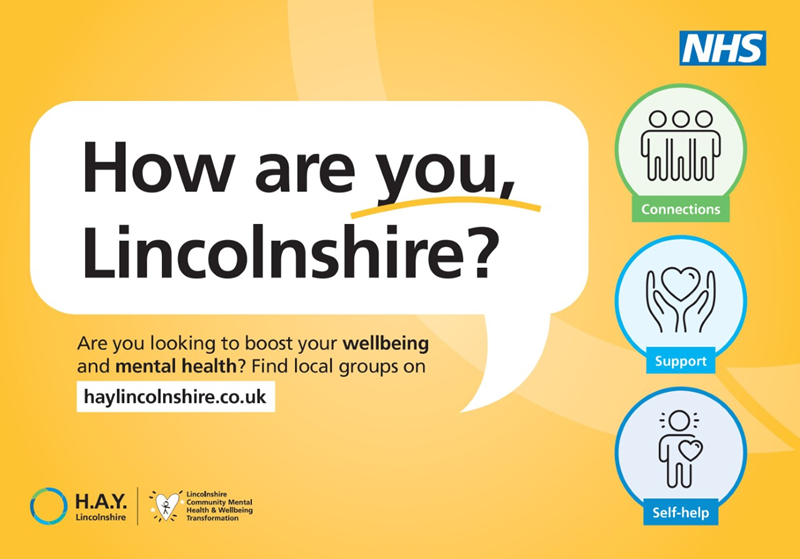
Night Light Cafés are safe spaces that offer an out-of-hours, non-clinical support service and are staffed by teams of trained volunteers available to listen. They also provide signposting advice and information on other organisations that can help with specific needs, such as debt advice or emergency food parcels.
Night Light Cafés are funded by NHS England and Improvements as an integral part of the Lincolnshire Mental Health Transformation Programme, which is committed to improving mental health and wellbeing by creating opportunities for people to thrive in connected communities.
It’s free to go to a Night Light Café; people should call or send a quick message to book in advance, to make sure someone is available to listen and help.
People can self-refer by calling 0300 011 1200 or via Instagram DM or Facebook Messenger @NightLightCafeLincoln.
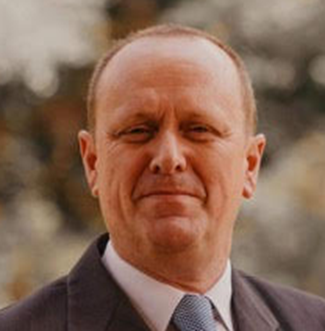 "The power of making connections and having conversations is huge,” explains community connector Mike Farley from Bridge Central and Bridge Night Light Café in Lincoln. “It makes such a difference to people having a purpose, taking part in a shared activity and building confidence.
"The power of making connections and having conversations is huge,” explains community connector Mike Farley from Bridge Central and Bridge Night Light Café in Lincoln. “It makes such a difference to people having a purpose, taking part in a shared activity and building confidence.
“We’ve seen it so many times here. For example, a few months ago, a young lady started to visit the Night Light Café at Bridge. She was lonely and isolated. Over a period of a few months, she tried new activities, made friends, and built a new support network in the local community. Now, she is confident and has a job in Lincoln. It’s wonderful to see the transformation.”
All of the available help, support and activities in your area (including Night Light Cafes) are now searchable in one easy to use free resource – HAY Lincolnshire (How Are You?) Lincolnshire.
Victoria Sleight, Head of Community Mental Health Transformation at Lincolnshire Partnership NHS Foundation Trust, commented:
“Common questions residents ask, are: How can I connect with others in my local community? What sort of things should I do?
“We’re here to help and support people, so they can find opportunities or groups which are right for them. The new online resource haylincolnshire.co.uk helps do just that.
“We’ve worked with partners from local councils, the voluntary sector, and some of our Experts by Experience to develop a mental health and wellbeing specific website. Community connectors like Mike from across the county will be working with us to continually share and update the information on it, so it will have a wealth of really valuable local support.”
Visit www.haylincolnshire.co.uk to find out more.
NATIONAL CENTRE UPDATE
Best Practice Gazeteer
We are beginning to build a portfolio of case studies showcasing the very best practice in the delivery of primary care. If you have any leads which you think might bring us to some areas of good practice please do let us know.
New Board Members
Recently we welcomed four new Board members: Nikki Silver CEO of LIVES, Professor Mark Gussy Global Professor in Rural Health and Care University of Lincoln, Mark Cooke (Regional Director of Strategy and Transformation, NHSEI South West) and Andrew Dickenson, Chief Dental Officer for Wales. You can read more about them all here: https://www.ncrhc.org/about/team
Digital Literacy
We are launching a new pilot project to look at the development of digital literacy skills amongst the population with a focus on better self-care. If you would like to know more let us know. Please click here to email us
Rural Health and Care Toolkit
Our progress with the toolkit continues with one Devon based partnership to concentrate on a “Deep End” initiative linked to the same approach as set out in the malnutrition article above, another (Gloucestershire) focusing on social prescribing and a third on the interface between the VCS and statutory sector. In Northern Ireland our partners are reviewing the operation of the health care system on Rathlin Island.
House of Lords
On 21 February we will be showcasing our key themes in Health and Care agenda at a meeting hosted by the South and East Lincolnshire Council Partnership.
Self Employed Social Care
We have a meeting this week coming up with Pip Cannons from Community Catalysts about their brilliant model for addressing the social care staffing challenges which really works well in rural settings – I can let you know more if you are interested. If so please click here to email us
Spread the word
If you know of other organisations that you think would benefit from joining the Rural Health & Care Alliance, please click here to email us and let us know.
RURAL SERVICES NETWORK
Up to date news on Health and Care
The Rural Services Network provides a useful source of themed news content and data. Check out the latest news on Health & Wellbeing and Vulnerability, where you’ll find articles on a diverse range of rural issues affecting rural communities. You might also find this research on Over 65 Population Projections useful too.
Latest from RSN Member Insights
RSN Member Insights is the place to discover the statistics that define communities within our membership. It is regularly updated with new analyses, and these will be highlighted in the 'What's New' section of the RSN's Weekly Rural Bulletin. The Rural Bulletin also provides a selection of the most rurally topical news items, so do subscribe and encourage your colleagues to subscribe to what is an invaluable weekly periodical.
To make a suggestion of data that would benefit you by being included in the Member Insights section, please email Dan Worth, our Research and Performance Analyst, at [email protected].
| The Rural Health & Care Alliance is a membership organisation administered by the Rural Services Network on behalf of the National Centre for Rural Health & Care. Explore the RHCA service below: |
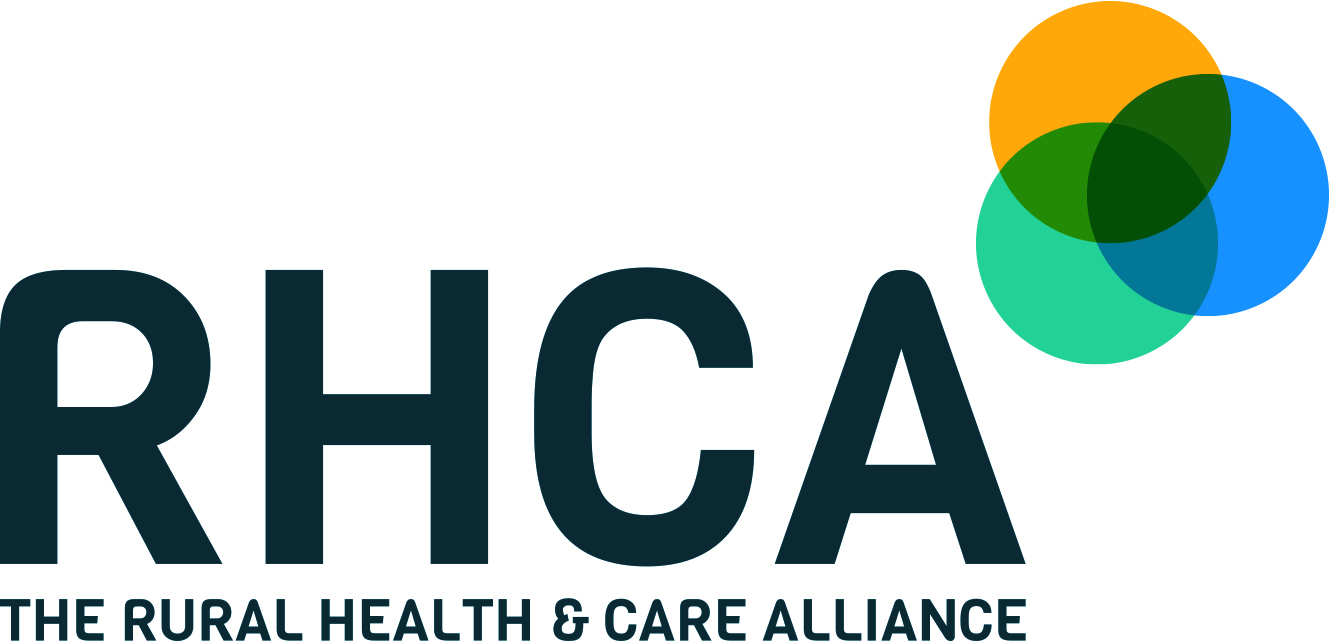 |
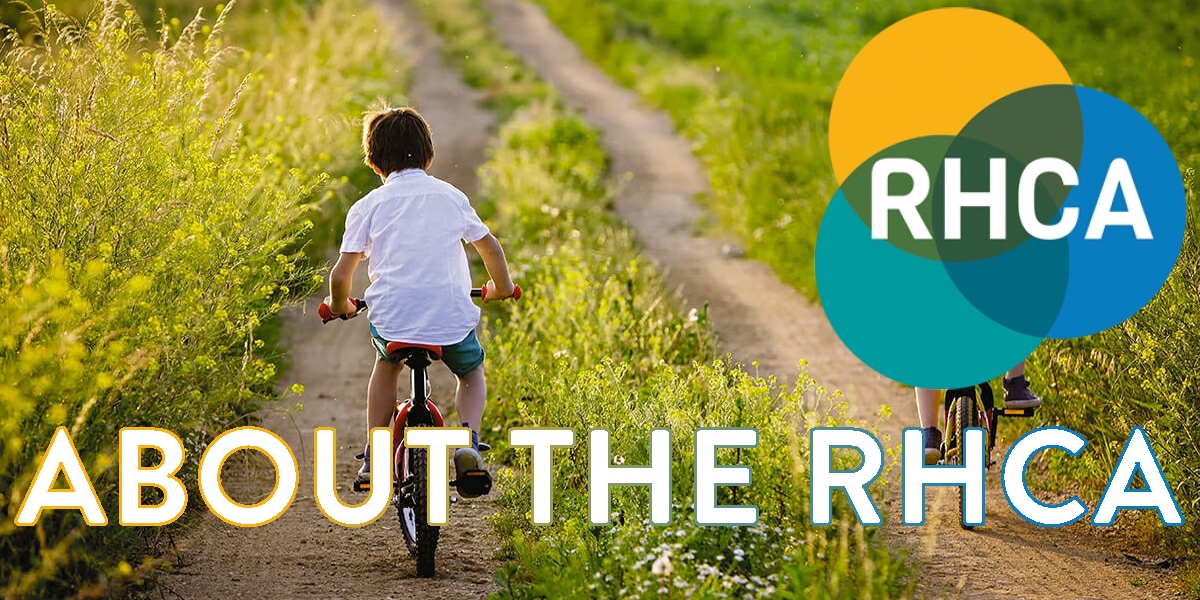 |
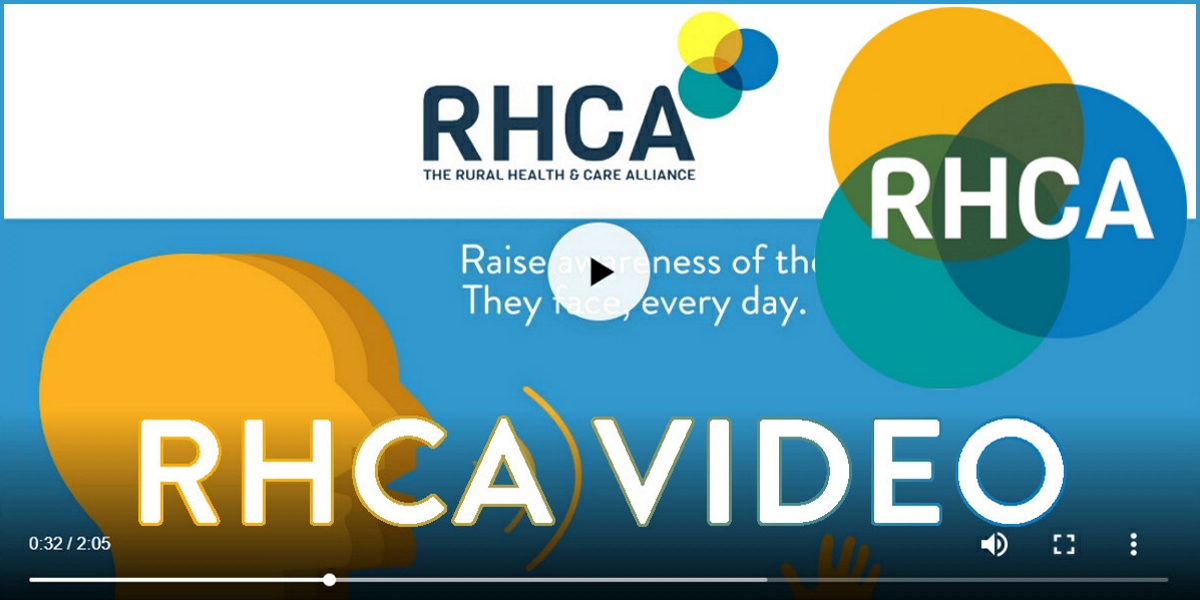 |
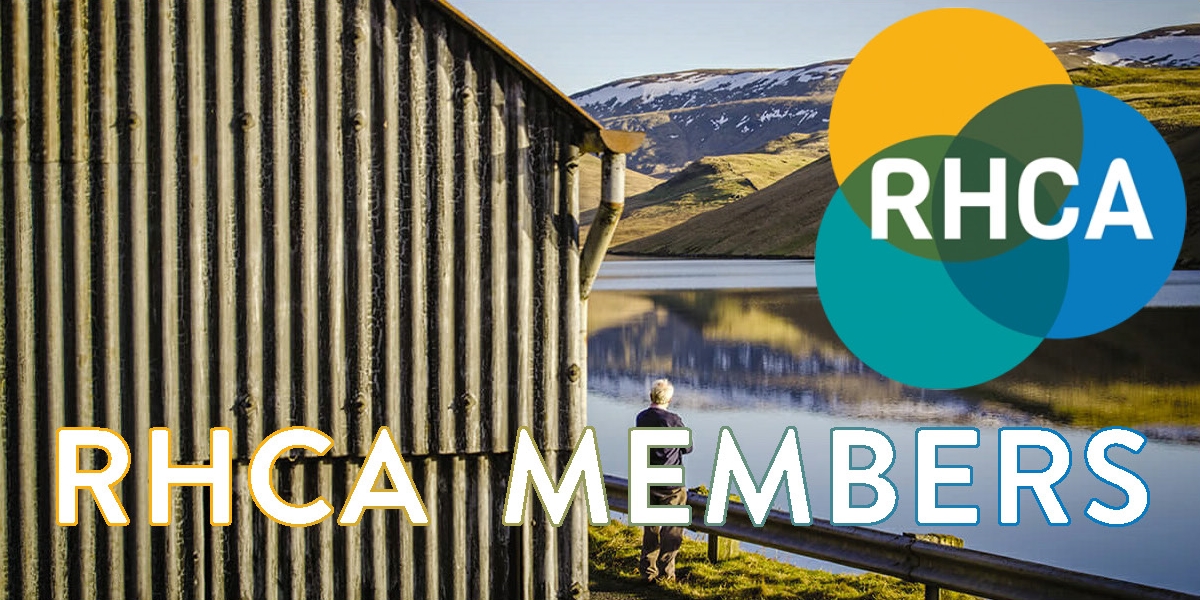 |
 |
 |
 |
 |
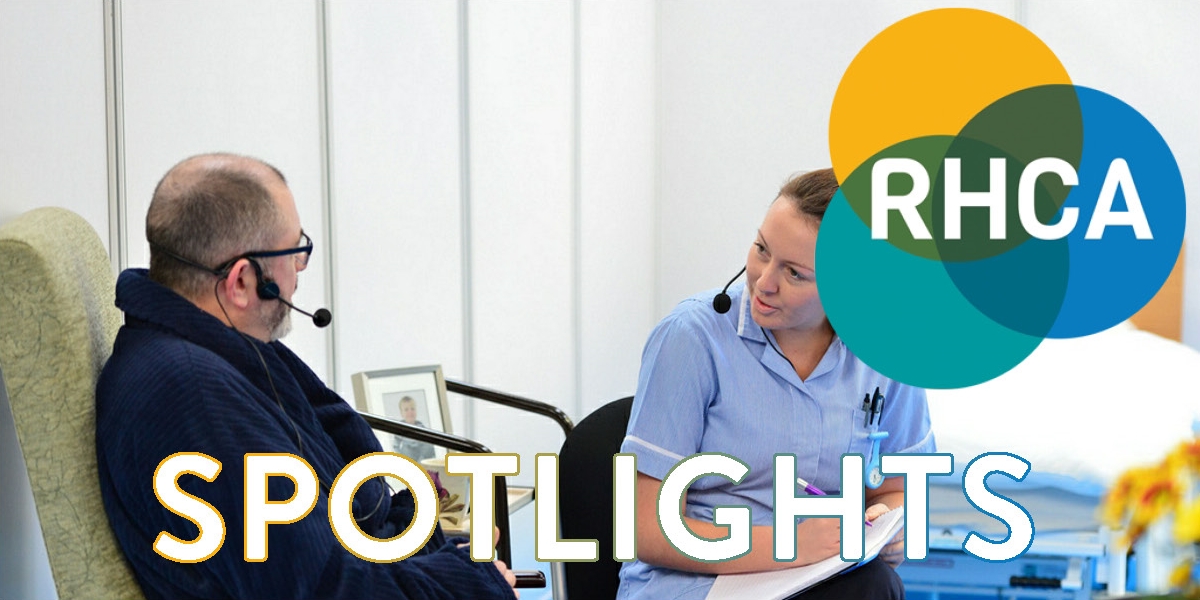 |
 |




